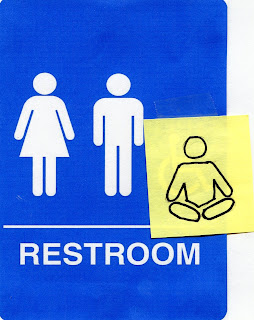Day 8: The Simplest Meditation
What if we stopped trying to fix what we think is broken? What if everything is perfect?
In light of all that is going on in this country and the world, it feels shocking to even propose such a thing. How is what we are experiencing perfection?
Melvin McLeod, editor of Lion's Roar magazine, wrote an introduction to the meditation issue last year titled "The Simplest Meditation". He explains that the Tibetan word Dzogchen, means "Great Perfection" and reflects the belief that we are already perfect. That deserves more explanation.
As we struggle in this world, McLeod asks the question "how can everything be perfect if it's so screwed up?". The answer is simple, but not easy, as the saying goes.
We humans are driven by a need to fix what we see as broken. I see this in myself and people I know. And who wouldn't want to fix the mess we are in? McLeod asks, "What if nothing is broken? What if our problem is that there is no problem and we just don't know it?". Stay with me here, I haven't lost my mind just yet.
Byron Katie, author of Loving What Is, explains that when we are feeling angry, upset and frustrated it's because we are not accepting what is. That usually gets an immediate rise out of people. "What do you mean 'accept what is'?? What IS, is horrible! It would be wrong, uncaring, and irresponsible if I accepted what IS!" Katie argues that fighting against 'what is' makes us less able to make a change, because we are caught in an emotional reaction.
So it isn't about going around fixing all the wrongs and injustices, but instead noticing and adjusting our relationship to them so we can be more effective. The Serenity Prayer says it beautifully: change what I can, accept what I can't change. We do not do ourselves, or anyone else, a favor when we are frustrated and shaking a fist on FaceBook. In fact, who are we to even know how things should be fixed?
It's an interesting thought and a very Buddhist one. So what do we do? How do we escape the vicious cycle of fixing what isn't broken? McLeod says we just stop. See what I mean about simple, but not easy? What does it feel like to see things screwed up and not do anything about them? For me it brings an interesting blend of fear and relief. Who would we be if we stopped fixing? Who would ensure our well being if we were not trying? If we stopped, would we cease to exist or would we be really alive? Not fixing does not mean we do nothing. What would that look like?
I thought that this would be interesting idea for us to meditate on today. You can read the entire editorial here.
Be we.. Keep going!




Comments
Post a Comment